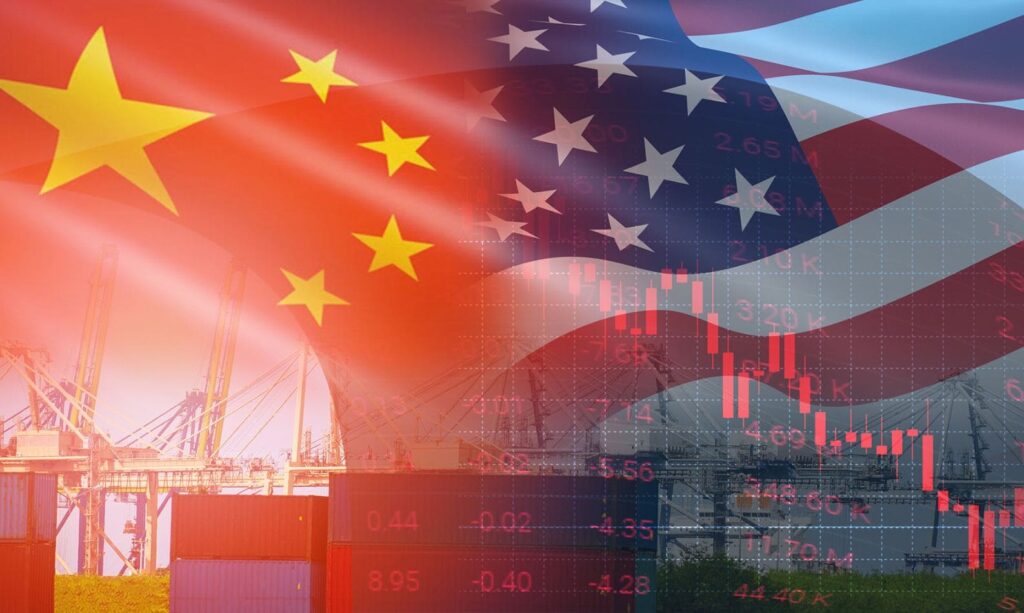Introduction
A trade war is an economic conflict where one state increases tariffs on imports from another to reduce purchases from overseas marketplaces while protecting the interests of local entrepreneurs. It is a passive counterattack whose weapons include taxes, duties, embargoes, import quotas, subsidies, and currency devaluation. Trade war may cause the global economy to suffer a worldwide recession increasing inflation, declining investments, and causing unemployment, slowing overall economic growth.
Increase in Inflation
The price increase causes worldwide inflation, leading to a recession, and equity values can fall, affecting economies adversely and leading to welfare deterioration. For instance, the impact of increasing tariffs of about twenty-five percent on Chinese goods implied more significant purchase costs for United States (US) consumers and other states, like Taiwan, South Korea, and Malaysia, in the same supply chain since it reduced customers’ affordability due to the high pricing of imported goods.1 Trade restrictions can significantly harm low-income households by driving tradeable consumer items more expensive, which may render them out of reach for ordinary people at the bottom of the pyramid, especially in developing nations. Therefore, an increase in customs duties on the importation of consumer goods results in the high price of commodities, leading to inflation, affecting the cost of living, and slowing economic growth.
1. Anjala Kalsie and Ashima Arora, “Us–China Trade War: The Tale of Clash Between Biggest Developed and Developing Economies of the World,” Management and Economics Research Journal 5, no. 4 (2019): 8, https://doi.org/10.18639/MERJ.2019.956433.

Decline in Investment
The trade war policies have a detrimental influence on global share prices, causing them to fall, affecting worldwide economies interlinked through finance and trade, leading to a drop in investments, and slowing global economic development. For example, high tariffs might cause uncertainty and a decline in demand and investment, making enterprises postpone investing initiatives, which impede production and long-run economic expansion by decreasing investors’ exposure to the equity market and credit supply.2 The threat of a prolonged trade war may affect worldwide investment, labor, and economic development rates in developed and emerging economies. As a result, there are decreased business activities due to the high cost of manufacturing and lack of capital to invest and sustain companies, hampering the growth of the global economy.
2. Abdulhamid Sukar and Syed Ahmed, “Rise of Trade Protectionism: The Case of US-Sino Trade War,” Transnational Corporations Review 1, no. 4 (2019): 286, https://doi.org/10.1080/19186444.2019.1684133.
Unemployment
Declines in investments due to high inflations hinder or delay new projects by investors globally, leading to a rise in unemployment rates. A study reported that, during the US-China trade war, manufacturers and a wide range of American firms expressed concern that the additional tariffs negatively impacted their profitability, hiring, and growth, leading to a dismissal of employees to reduce costs.3 Due to increased tariffs between the warring nations, the cost of running firms, agricultural productions, and industrial inputs may rise due to increased capital investment, harming the local and global economy. In turn, business activities are discouraged due to the increased taxes on raw materials and consumer goods, which cause underemployment leading to low monetary circulation in the national and global economy, slowing development.
3. Sherman Robinson and Karen Thierfelder, “Global Adjustment to US Disengagement from the World Trading System,” Journal of Policy Modeling 41, no. 3 (2019): 533, https://doi.org/10.1016/j.jpolmod.2019.03.019.
Conclusion
The trade war is a strategic rebellion against one nation’s wages against another, which can affect the world’s financial system through increased inflation, a decline in investments, and unemployment, leading to slow economic growth. High trade tariffs also affect manufacturing, agriculture, and business activities, impacting the life of low-income earners and the global economy. Hence, the prolonged trade war may result in a recession, significantly affecting developing nations and the world economy in general.
Bibliography
Kalsie, Anjala, and Ashima Arora. “US-China Trade War: The Tale of Clash Between Biggest Developed and Developing Economies of the World.” Management and Economics Research Journal 5, no. 4 (2019): 1-11. https://doi.org/10.18639/MERJ.2019.956433.
Robinson, Sherman, and Karen Thierfelder. “Global Adjustment to US Disengagement from the World Trading System.” Journal of Policy Modeling 41, no. 3 (2019): 522–536. https://doi.org/10.1016/j.jpolmod.2019.03.019.
Sukar, Abdulhamid, and Syed Ahmed. “Rise of Trade Protectionism: The Case of US-Sino Trade War.” Transnational Corporations Review 1, no. 4 (2019): 279–289. https://doi.org/10.1080/19186444.2019.1684133.


